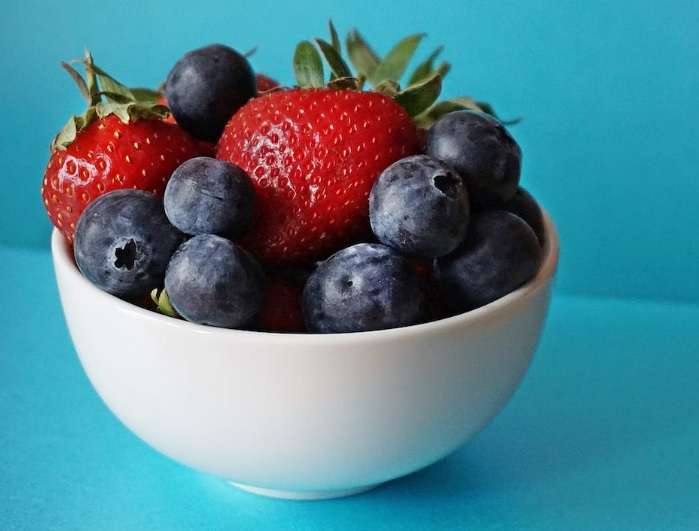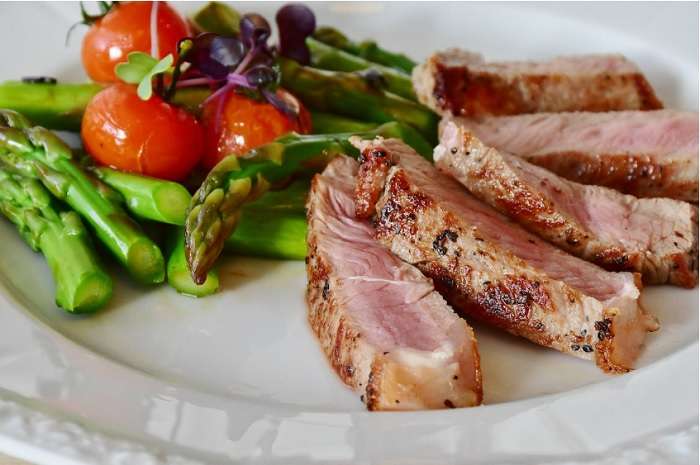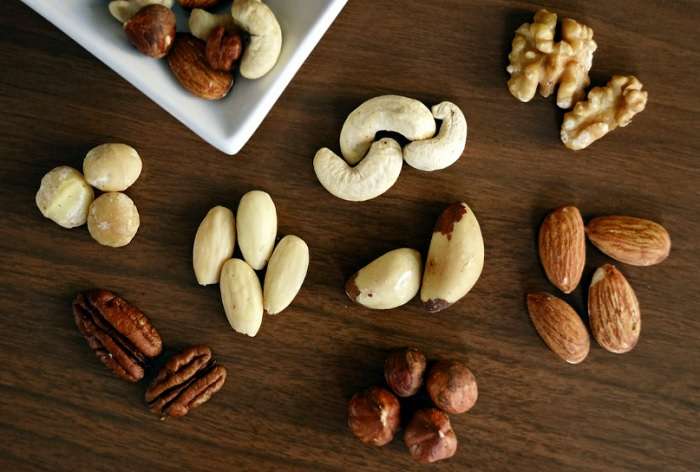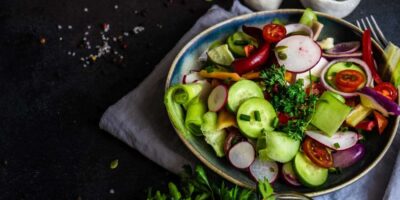
You’ve done everything possible to create a peaceful sleep environment, but somehow, you still don’t sleep well. Surprisingly, what you eat could be to blame. Believe it or not, the role of nutrition in a nighttime routine is far greater than you might think. What you eat and drink really does affect your quality of sleep.
Please note that I’m not a medical professional and the following shouldn’t be considered professional medical advice. You should always discuss issues with sleep and your health with your doctor.
The Importance of Nighttime Nutrition
You already know that a good breakfast helps give you energy to start your day. The same logic applies to what you eat and drink before bed. However, in this case, it’s not about boosting energy levels. It’s all about helping you wind down for the day.

The right nutrients help calm your system by increasing certain natural hormones like serotonin and melatonin. These are critical for ensuring a much higher quality of sleep and helping you relax after a stressful day.
Making a few simple changes to your nightly snacks may have a major positive impact on sleep quality and duration. You’re left feeling well rested and ready for the day ahead. Just a few benefits of changing your nighttime eating habits include:
- Get important nutrients that help you sleep better, such as vitamin B6, tryptophan, calcium, and magnesium
- Encourages the production of natural relaxing hormones
- Reduce spikes in blood sugar
- Reduce stress
- Reduce inflammation due to stress
- Fall asleep easier and for longer periods
What Should You Eat Before Bed?
It all starts with your dinner. Try to have a healthy, balanced meal that includes a mix of lean proteins, vegetables, and complex carbohydrates. Not only are these healthier choices overall, but they make you feel full longer and offer the nutrients you need for better sleep.

Ideally, opt for fish, chicken, or even vegan options for your meat. Whole grains, sweet potatoes, pinto beans, potatoes, tomatoes, zucchini, green beans, and carrots are all great options for your complex carbs. While not all veggies are considered complex carbs, it’s still healthy to eat the vegetables you like best.
Follow up with a fruit-based dessert using natural fruits, such as strawberries, apples, or grapefruit. Fruit gives you natural sugar without being too sweet. Eat a bowl of cut of fruit, add it to some angel food cake, or any other option that’s not filled with excess sugar.
With a more balanced meal, you won’t feel the need to snack as much.
Of course, if you eat early enough in the evening, you might still be a bit hungry before bed. As we all know, if you’re stomach’s rumbling, you’re not going to sleep well.

However, ensure you get the proper nutrition in a nighttime routine by choosing the right snacks. Don’t just scarf down a bag of greasy chips or an entire pint of ice cream. Instead, opt for lighter snacks that support healthy sleep, such as:
- Nuts and natural nut butters
- Warm milk
- A few pieces of dark chocolate
- Whole grain toast
- Oatmeal with fruit
- Plain yogurt with or without fruit
- Small bowl of fruit
- Relaxing herbal tea, such as chamomile, valerian root, or lavender (avoid any tea with caffeine)
These foods include nutrients, such as tryptophan, that aid your natural sleep cycle versus disrupting it. Ideally, eat these at least a few hours before bed. If you’re prone to indigestion, try to stop eating at at least three hours before bed. Late night snacking, even if it’s healthy, may still keep you tossing and turning as your body tries to digest the food.
What Should You Avoid
Naturally, you can’t just eat whatever you want and expect to sleep well. For instance, you wouldn’t want to drink an espresso right before bed. Instead of sleeping, you’d probably just try to reorganize the whole house.

So, while you’re creating a nighttime nutrition routine, make sure you avoid these foods and drinks:
- Anything with caffeine – This includes sodas, coffee, tea, and even large amounts of chocolate (maybe skip chocolate cake before bed).
- High sugar foods – Just like with caffeine, too much sugar will keep you awake at night. Having a sugary dessert with dinner is okay, but make sure you’re eating early enough that it won’t negatively affect your sleep. Sugary snacks cause blood sugar imbalances that damage your natural sleep cycle. But, if you’re snacking before bed, stick with more natural sugars, such as fruits.
- Heavy meals – This can include anything with rich sauces, fatty proteins, or simply overeating. For instance, try to avoid a big bowl of chicken alfredo an hour before bed or you’ll feel bloated and miserable all night.
- Spicy foods – Even if you have zero trouble eating the spiciest wings available, your body still doesn’t like them right before bed. Your body needs at least several hours to properly digest spicy foods before you lay down. Otherwise, acid reflux could become your bedtime buddy.
A good rule of thumb is to make your dinner and nightly snack routine the healthiest choices of your day. You’ll get better nutrients and antioxidants to help you sleep better, reduce stress, and improve your overall health.
Frequently Asked Questions
What else can I do to sleep better at night?
Nutrition is just one part of helping you sleep better. There are several other things you can do, such as going to bed at the same time each night, limiting screen time, and reducing stress.
Can better nighttime nutrition improve my health?
Yes. Better sleep reduces your risk for a wide variety of health issues, such as heart disease, depression, obesity, and even diabetes. If you want to further improve your health, try these simple lifestyle changes today.
Image credit: Unsplash








